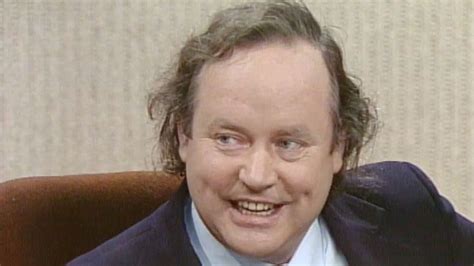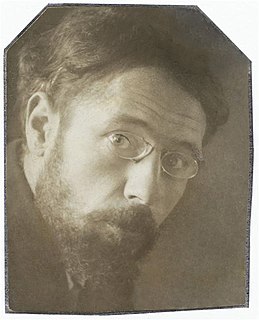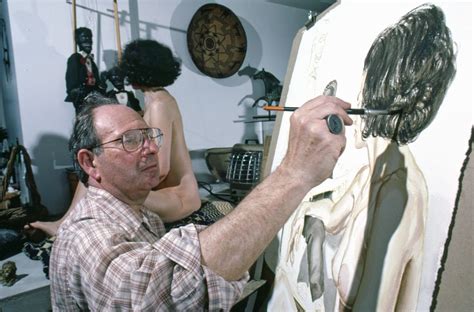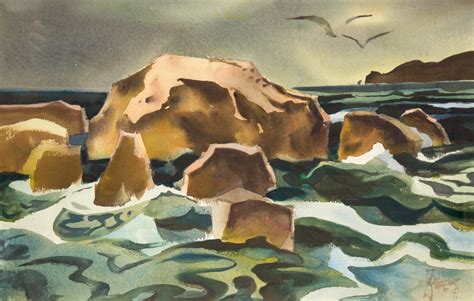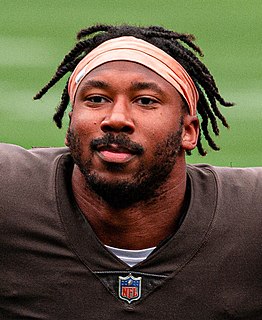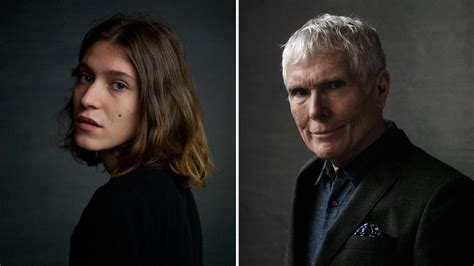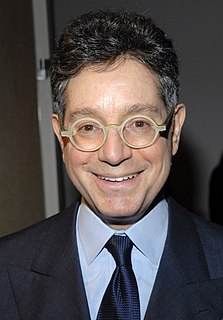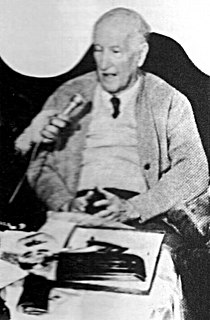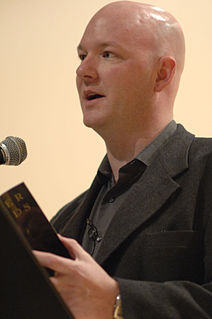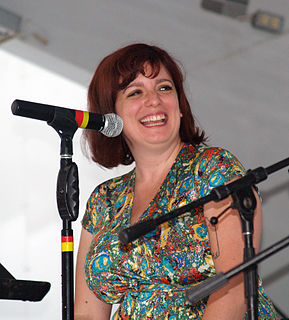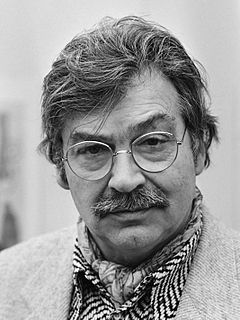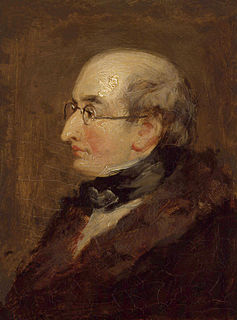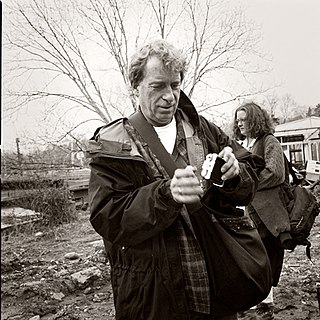Top 1200 Painting And Poetry Quotes & Sayings - Page 20
Explore popular Painting And Poetry quotes.
Last updated on April 19, 2025.
After painting comes Sculpture, a very noble art, but one that does not in the execution require the same supreme ingenuity as the art of painting, since in two most important and difficult particulars, in foreshortening and in light and shade, for which the painter has to invent a process, sculpture is helped by nature. Moreover, Sculpture does not imitate color which the painter takes pains to attune so that the shadows accompany the lights.
I shall not find a painting more beautiful because the artist has painted a hawthorn in the foreground, though I know of nothing more beautiful than the hawthorn, for I wish to remain sincere and because I know that the beauty of a painting does not depend on the things represented in it. I shall not collect images of hawthorn. I do not venerate hawthorn, I go to see and smell it.
Poetry is, above all, a singing art of natural and magical connection because, though it is born out of one's person's solitude, it has the ability to reach out and touch in a humane and warmly illuminating way the solitude, even the loneliness, of others. That is why, to me, poetry is one of the most vital treasures that humanity possesses; it is a bridge between separated souls.
The effort of painting from life has cost my models a great deal of physical discomfort, and cost me a great deal of money in model fees... I have wanted to make the camera obsolete... because, in my reading about early 20th century art, I found that the most frequently used argument made in favor of abstraction was that the camera made realist painting obsolete.
Suddenly, I saw it in a new way, as a picture that offered me a new view, free of all the conventional criteria I had always associated with art. It had no style, no composition, no judgment. It freed me from personal experience. For the first time, there was nothing to it: it was pure picture. That's why I wanted to have it, to show it - not use it as a means to painting but use painting as a means to photography.
People who are knowledgeable about poetry sometimes discuss it in that knowing, rather hateful way in which oenophiles talk about wine: robust, delicate, muscular. This has nothing to do with how most of us experience it, the heart coming around the corner and unexpectedly running into the mind. Of all the words that have stuck to the ribs of my soul, poetry has been the most filling.
It really takes growing up to treasure the specialness of being different. Now I understand that I've gotten to enjoy things that others have not, whether it's the laughter, the poetry of my Spanish language - I love Spanish poetry, because my grandmother loved it - our food, our music. Everything about my culture has given me enormous education and joy.
I'm finding that writing poetry is strengthening my songwriting, because you're learning to make a piece of writing work on a page with nothing else. I was also finding within poetry I felt a lot more free to write about very different matters, to write about social issues or things that are going on around me.
Look at the paintings of Picasso. He is a great painter, but just a subjective artist. Looking at his paintings, you will start feeling sick, dizzy, something going berserk in your mind. You cannot go on looking at Picasso's painting long enough. You would like to get away, because the painting has not come from a silent being. It has come from a chaos. It is a by product of a nightmare. But ninety-nine percent art belongs to that category.
When I'm teaching, I tell the story of this painting for two reasons. First of all, if you want a good solid color structure, you have to have a solid development in values, dark and light. Second, if you have a good design, don't leave it if you fail to render it to its full extent the first time around. Remember it's the design that's important. Try and try till you get the thing to work. That's why The Pattern Makers is a key picture in my painting career.
One of the interesting things about the history of poetry in the 16th, 17th, and 18th centuries is that people who read liked getting their information in rhyme just as much as in prose. The genre that we would think of as nonfiction often was written in verse in forms like the Georgic when people thought that one of the tasks of poetry was conveying arguments and information in a pleasant way.
Perhaps the chief cause which has retarded the progress of poetry in America, is the want of that exclusive cultivation, which so noble a branch of literature would seem to require. Few here think of relying upon the exertion of poetic talent for a livelihood, and of making literature the profession of life. The bar or the pulpit claims the greater part of the scholar's existence, and poetry is made its pastime.
Even though novels were the love of my life, I started off writing poetry. I think because I had a knack for image and lyricism, even though I didn't really have anything to write about, or I didn't know what to write about. I could just couple words together that pleased me and so poetry seemed sort of natural.
Think of a fine painter attempting to capture an inner vision, beginning with one corner of the canvas, painting what she thinks should be there, not quite pulling it off, covering it over with white paint, and trying again, each time finding out what her painting isn't, until she finally finds out what it is. And when you finally do find out what one corner of your vision is; you're off and running.
I didn't know how this would play out when I was a kid. I knew I wanted to play ball, be a paleontologist, and write poetry. I thought, 'Heck, where will I find the time? Well, football comes first, and I'll just find some time for poetry, and paleontology can come at the end.' I made this plan at 14, and dang, it's all coming together.
In 1915 Sophie Tauber and I carried out our first works in the simplest forms, using painting, embroidery and pasted paper (without using oil colors to avoid any reference with usual painting). These were probably the first manifestations of their kind, pictures that were their own reality, without meaning or cerebral intention. We rejected everything in the nature of a copy or a description, in order to give free flow to what was elemental and spontaneous.
Every poet gets to choose what kind of community he or she serves with the poems, and it's true that there is a community for very difficult, challenging poetry. It's a community that's established itself over the last 80 years, that was originally, in effect, really started by T. S. Eliot and Ezra Pound. They believed that poetry ought to contain learning, that it ought to rise upon all the learning that went before.
The judges who awarded the 1980 Commonwealth Poetry Prize to my first collection of poems, Crossing the Peninsula and Other Poems, cited with approval and with no apparent conscious irony my early poem, "No Alarms." The poem was composed probably sometime in 1974 or 1975, and it complained about the impossibility of writing poetry - of being a poet - under the conditions in which I was living then.
I do believe that one's writing life needs to be kept separate from Po-Biz. Personally, I deal with this by not attending too many poetry readings, primarily reading dead poets or poems in translation, reading Poets & Writers only once for grant/contest information before I quickly dispose of it, and not reading Poetry Daily. Ever.
[Comics is] one of the last havens for honesty when it comes to a reader's genuine response to art. Most of us, if we don't find any sympathy or pleasure, for example, in a modern painting, are likely to blame our own ignorance of the history and theory of painting. But nobody pretends to like a bad comic strip. Such harshness is necessary for any real truth to surface, I think, and for art to really contribute anything to life. Though I don't know. I could be wrong.
It's true, I do sometimes suspend myself over the canvas, but mostly I work at a table when I'm making a painting. When I use 'The Rig,' my feet are firmly anchored. I lower myself horizontally just long enough to make a brush stroke - a matter of seconds - and then I'm upright again. My assistant then erases the painting quickly with a squeegee and I go for it again... until I get it right. It's like trying to hit a home run.
I started getting really curious about art. I read about the Dadaists and the Futurists and the Constructivists - those kind of movements which were reflecting the angst of the people of their times. Their work was trying to lead a movement. I began thinking about what was happening, with painting on the streets and painting on the trains as being similar but also coming from a real, pure space. It wasn't being created by academies. It was a spontaneous combustion of ideas that just happened.
Young poets worry that their experiences - whether urban or rural, immigrant or native, small town, suburb, or big city - aren't worthy of the written word. But for me the urge toward poetry, that seductive feeling of being swept away by words, was enough for me to overcome that fear that my experiences weren't worthy of poetry itself.
I wanted to be a visual artist, but I realized I was more affected by what I read than by what I saw. I would go to a show at a museum and look at a painting and say, 'Oh I wish I owned that,' and that would be the end of my relationship with a painting. With a short story I would read or with an author I would discover I could be haunted. It would affect my mood and affect the way that I saw the world. I thought, wow, it would be amazing to be able to do that.
The world will not give you an endowment for your finger-painting. Your finger-painting may be marvelous, but our government and society do not value art adequately. We should fulminate against that and seek to change it, but in the meantime you have to make choices. If you're an artist who likes to have a steady income for yourself, for your children, for your partner, to help you engage in elder care as you take care of your parents or grandparents, that's a good thing.
I regard a love for poetry as one of the most needful and helpful elements in the life-outfit of a human being. It was the greatest of blessings to me, in the long days of toil to which I was shut in much earlier than most young girls are, that the poetry I held in my memory breathed its enchanted atmosphere through me and around me, and touched even dull drudgery with its sunshine.
My paint is like a rocket, which describes its own space. I try to make the impossible possible. What is happening I cannot foresee, it is a surprise. Painting, like passion, is an emotion full of truth and rings a living sound, like the roar coming from the lion's breast. To paint is to destroy what preceded. I never try to make a painting, but a chunk of life. It is a scream; it is a night; it is like a child; it is a tiger behind bars.
When I started to take literature and poetry classes, I just started to get inspired by these new incredible works of art that I had never seen or heard of before. I wrote a lot of bad high-school poetry, just like pretty much everyone did, I think, at some point. For me, the inspiration never really stopped.
The explanation of the propensity of the English people to portrait painting is to be found in their relish for a Fact. Let a man do the grandest things, fight the greatest battles, or be distinguished by the most brilliant personal heroism, yet the English people would prefer his portrait to a painting of the great deed. The likeness they can judge of; his existence is a Fact. But the truth of the picture of his deeds they cannot judge of, for they have no imagination.
Poetry begins in trivial metaphors, pretty metaphors, "grace" metaphors, and goes on to the profoundest thinking that we have. Poetry provides the one permissible way of saying one thing and meaning another. People say, "Why don’t you say what you mean?" We never do that, do we, being all of us too much poets. We like to talk in parables and in hints and in indirections - whether from diffidence or some other instinct.
The perils, rewards, punishments, and fulfillments of an adventure must be real, or the adventure is only a shifting and heartless nightmare. If I bet I must be made to pay, or there is no poetry in betting. If I challenge I must be made to fight, or there is no poetry in challenging. If I vow to be faithful I must be cursed when I am unfaithful, or there is no fun vowing.
Poetry cannot be translated; and, therefore, it is the poets that preserve the languages; for we would not be at the trouble to learn a language if we could have all that is written in it just as well in a translation. But as the beauties of poetry cannot be preserved in any language except that in which it was originally written, we learn the language.
It is hard to compare cultures without overgeneralizing, but I think a lot of American poetry has an assertiveness - an upbeat quality - that's less typical of Canadian poetry. Of course there are poets in both countries to whom that generalization does not apply. Speaking broadly, I'd describe Canadians as being a bit more reserved than Americans. Not less opinionated - just less direct.
A forest," William said, his expression distant. "Where the ground is dry soil and stone. Where tall trees grow and centuries of autumn carpet their roots. Where the wind smells of game and wildflowers." "Why, that was lovely, Lord Bill. Do you ever write poetry? Something for your blueblood lady?" "No." "She doesn't like poetry?" "Leave it." Hehe. "Oh, so you have a lady. How interes--
What I hate about kitchen-sink dramas is [this idea] that the set is real, therefore you're going to be seeing truth. You have to earn truth. Truth can't be a part of the fact that people appear to talk that way and live in that room. You're looking for the poetry in something, and I don't mean poetry in the fancy sense. Naturalism believes by just replicating a thing you give the truth, rather than earning the truth.
I don't know but a book in a man's brain is better off than a book bound in calf--at any rate it is safer from criticism. And taking a book off the brain, is akin to the ticklish & dangerous business of taking an old painting off a panel--you have to scrape off the whole brain in order to get at it with due safety--& even then, the painting may not be worth the trouble.
What interested me in film was the image-making aspect of it. So, I went to school in cinematography. I was really convinced that image was what I wanted to do, and I think it came from the fact that I lived in a small town my whole life, but my mother was very interested in painting, so she would bring us to Paris for two weeks. So, we're going to the Louvre and to the museums and to see shows. In the evening we were seeing theater. Painting is basically what led me. I think the image was key.
No one can threaten poetry. It's always been there, always will be. Humans need it to live: it has sustaining powers. How could we (anyone) get through adolescence without some form of song? Song is only a version of lyric poetry that is carried more by melody than by internal coherence and unity. but lyric and song - they are the same.
The word 'mundane' has come to mean 'boring' and 'dull', and it really shouldn't - it should mean the opposite. Because it comes from the latin mundus, meaning 'the world'. And the world is anything but dull: The world is wonderful. There's real poetry in the real world. Science is the poetry of reality.
My background is in painting but in school in the sixties, like many artists of that time, I believed that painting was dead. I began to work in collaboration with other artists in the creation of performances and installation works. Soon after, I started making video and photographic works and in the process became fascinated with the media itself. Before long I was setting things up just for the camera. In l970 I got a dog and he turned out to be very interested in video and photography as well.
I'll say that this is probably the best time for poetry since the T'ang dynasty. All the rest of the world is going to school on American poetry in the twentieth century, from Ezra Pound to W. S. Merwin, and for very good reason. We have soaked up influence in the last century like a sponge. It's cross-pollination, first law of biology, that the more variety you have the more health you have.
Any artist, in any field, wants to press deeper, to discover further. Image and sound play are among the strongest colors available to poetry's palette. For a long time, I've wanted to invite in more strangeness, more freedom of imagination. Yet music, seeing, and meaning are also cohering disciplines. They can be stretched, and that is part of poetry's helium pleasure. But not to the point of breaking.
I liked to write from the time I was about 12 or 13. I loved to read. And since I only spoke to my brother, I would write down my thoughts. And I think I wrote some of the worst poetry west of the Rockies. But by the time I was in my 20s, I found myself writing little essays and more poetry - writing at writing.
I sense the world might be more dreamlike, metaphorical, and poetic than we currently believe--but just as irrational as sympathetic magic when looked at in a typically scientific way. I wouldn't be surprised if poetry--poetry in the broadest sense, in the sense of a world filled with metaphor, rhyme, and recurring patterns, shapes, and designs--is how the world works. The world isn't logical, it's a song.


